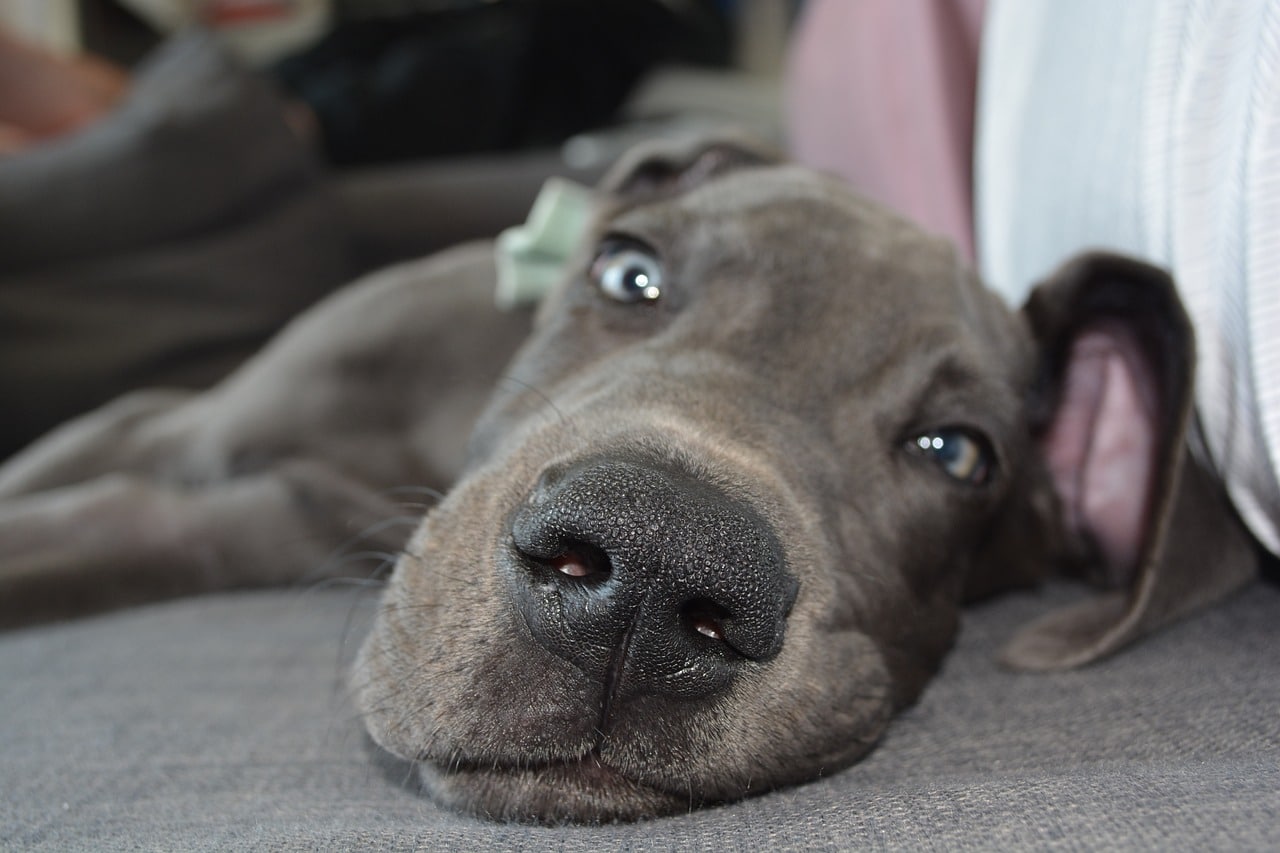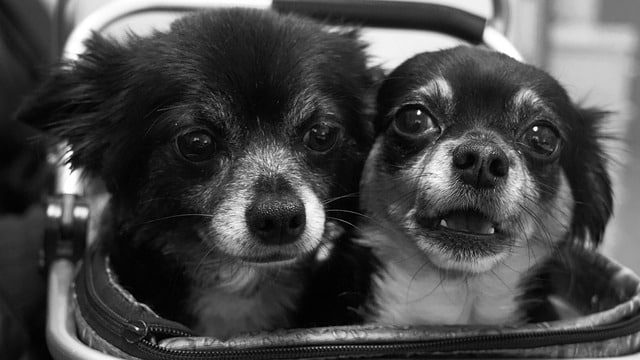Have you ever wondered why are dog noses wet? You might have noticed that your dog’s nose is always wet. The fact is that dogs’ noses naturally secrete a clear, watery fluid that helps to moisten their nostrils and help them pick up scents. However, there are many more reasons why a dog’s nose is wet, and in this post, we will explore these reasons in detail.
Temperature Regulation
One of the primary purposes of a dog’s wet nose is to help them regulate their body temperature. Dogs do not have sweat glands all over their bodies like humans do, instead, they sweat primarily from their paw pads and their noses. When a dog’s nose is wet, it can help them dissipate heat, allowing them to keep their body temperature down and keep your dog cool.
Enhanced Sense of Smell
Dogs have an incredible sense of smell, and their wet noses play a crucial role in their ability to detect scents. The moisture helps to capture and retain scent molecules, allowing dogs to pick up even the faintest of odors. This is why dogs are often used in law enforcement to sniff out drugs, explosives, and even missing persons.
Moisturizing and Protection
A dog’s nose is made up of layers of skin, and the outermost layer is very delicate. Dogs licking their nose can irritate the skin so having a wet nose helps to keep it moisturized and protected. It also protects it from environmental elements such as wind, sun, and dust. Furthermore, the moisture helps to prevent cracking and irritation that could lead to infections.
Communication
A moist nose can also play a role in communication between dogs. The wetness of the nose can help to convey information about a dog’s emotions. For example, when a dog is excited, his or her nose may become wetter, indicating this excitement to other dogs.
Health Issues
In some cases, a wet dog nose can indicate health problems. If a dog’s nose is excessively runny or has a thick, discolored discharge, it could be a sign of an infection or allergies. It’s important to take your dog to the vet if you notice any concerning changes in their nose.
In summary, there are many reasons why a dog’s nose is wet. It helps regulate body temperature, enhances their sense of smell, protects and moisturizes their sensitive nose, communicates their emotions, and can also be an indicator of underlying health issues. So, the next time you see your furry friend with a wet nose, know that it’s a completely natural and essential part of your dog’s anatomy.

Why Is My Dog’s Nose Dry?
As pet owners, we know how important it is to look after our fur babies. We make sure they get the right nutrition, exercise, and veterinary care, and we’re always on the lookout for anything that might be wrong with them. One common concern that dog owners have is when they notice that their dog’s nose is dry. Are you wondering why your dog’s nose is dry? As you keep reading, we’ll cover the reasons for a dry nose in dogs and what you should do about it.
Environmental Factors
Environmental factors play a huge role in the hydration of your dog’s nose. If your dog spends a lot of time in a hot and dry location, they may become dehydrated which can lead to a dry nose. During the winter months, the air may be too dry, which can also make your dog’s nose prone to being dry. To solve this problem, make sure your dog always has access to clean water, keep them indoors on extremely hot or cold days, and if your home is too dry, consider investing in a humidifier.
Sunburn
Just like humans, your dog’s snout is susceptible to sunburn too, which can cause it to become dry. If you live in an area with strong UV rays, make sure your dog stays indoors during peak sunlight hours or gets suitable sun protection.
Aging
As dogs age, it’s not uncommon for them to experience changes in the hydration and color of their noses. A lot of aging dogs tend to develop a drier or even cracked nose, which can be uncomfortable for them. To help alleviate this issue, some pet owners tend to apply petroleum jelly to their pets’ noses. However, it’s wise to consult with your veterinarian to know what’s best for your furry friend.
Illness
Certain health issues can trigger a dry nose in dogs. For instance, autoimmune disorders, fungal infections, and bacterial infections can cause your pup’s nose to become dry. If your dog appears lethargic in addition to their dry nose, they may be suffering from an underlying medical condition that requires immediate attention.
Breed
Different breeds of dogs have different physical characteristics and properties. For instance, pugs, boxers, and bulldogs are known to have naturally drier noses than other breeds. This attribute is typical because of their short snouts that don’t produce as much moisture as the longer-nosed breeds. Nonetheless, it’s essential to be cautious and consult with a veterinarian if any health issue arises.
Now that you know the common reasons for a dry dog nose, it’s important to make sure your pet stays healthy and comfortable. As pet owners, we must pay close attention to our furry friends, and well-being- that way, you can be able to identify the issue and provide care accordingly. If your dog’s nose is dry, monitor them for other symptoms and consult with a veterinarian if you notice any other concerning behavior. Remember, prevention is always better than cure, so make sure your dog gets the right nutrition, exercise, and veterinary care to live a happy and healthy life.

The Wet and Dry Nose Affair: Breeds of Dogs with Wettest and Driest Noses
Dogs are an exceptional creation of nature, and we all love our furry companions with all our hearts. One of the intriguing features of dogs is their nose, which remains a matter of great fascination for pet owners. You must have heard people saying that wet dog noses are quintessential for a healthy dog, but is it always true? Below, we will explore some remarkable breeds of dogs with the wettest noses and some with the driest ones.
Breeds of Dogs with Driest Noses
English Bulldogs: English bulldogs are known for their wrinkled appearance, stocky build, and a dry nose. In most cases, an English bulldog’s nose can be dry and flaky, which comes from their genetics.
Afghan Hound: The Afghan hound is a tall and regal dog breed that has a dry and slightly rough nose. The coat type of Afghan hounds is thin to medium, and they do not seem to have much need for lubricated noses.
Pekingese: Pekingese is a small-sized dog breed that has a flat face and often has a dry and cracked nose. Pekingese are prone to allergies and can have skin problems, which contribute to their dry noses sometimes.
Breeds of Dogs with Wettest Noses
Bloodhound: The bloodhound is one of the fascinating dog breeds that have an excellent sense of smell and a wet nose to help sense it. They have long ears that help them track scent for hours and a wet nose that acts as a natural air purifier.
Boxer: Boxers are medium to large-sized dogs with a muscular and stocky build that have a wet nose. Boxers are known for their high energy levels, and their moist cold nose that helps them cool down their body temperature.
Akita: The Akita is a powerful, sturdy dog breed that has a wet nose and a thick coat. The breed originated from Japan and is known for its loyalty and strong personality. Their wet noses help them pick up scents and differentiate from one another.
The Importance of a Wet Nose for Dogs
A wet nose helps dogs in many ways, and it is not only beneficial for their sense of smell. A damp nose helps cool down their body temperature, and it also helps them absorb scent molecules better. In addition, the moisture in a dog’s nose acts like a filter for dirt, dust, and other particles that might enter their nasal passage.
What to Do if Your Dog’s Nose is Dry
A dry nose in dogs is not always a sign of sickness, but it can lead to complications if not treated. Dry noses in healthy dogs can lead to nasal discomfort, nasal bleeding, cracked edges, and difficulty in picking up scents. If your dog’s nose dries out, you should consult with your veterinarian to find out the cause.
A dog’s nose is an important organ for their overall health and well-being, so it is essential to keep it healthy. Breeds with dry noses have their unique characteristics, while wet noses do have their benefits. Regardless of whether your furry friend has a wet or dry nose, always keep an eye out for any signs of discomfort or changes. And, as always, be sure to schedule regular checkups with your veterinarian to ensure your dog stays healthy and happy.
In conclusion, a dog’s wet nose is a vital component in their overall health and well-being. It helps to regulate their body temperature, protect them from sickness, and gather important information about their surroundings. Understanding the science behind why dogs have wet noses can also be helpful in detecting changes in your pet’s health. So next time you see your furry friend with a wet nose, remember how important it is to their overall health and happiness.
Ruff House Dog Training
Ruff House Dog Training is here for any of your training needs! Contact us today!












